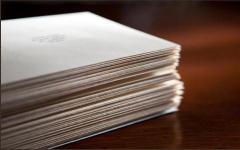Registration number and date:
Trade name of the drug: Melissa officinalis herb
Dosage form:
Herb powderCompound:
Melissa officinalis herbCharacteristic
Melissa officinalis herb contains essential oil, flavonoids, tannins and other biologically active substances.
Description
A mixture of pieces of stems, leaves, flowers and buds. Color ranges from green to greenish-brown with greyish-green, light green, light brown, brown, brownish-white, yellowish-white patches. The smell is weak, aromatic. The taste of the water extract is slightly bitter.
Pharmacotherapeutic group.
Sedative of plant origin.
pharmachologic effect
Melissa infusion medicinal herb has a mild calming effect and has moderate antispasmodic properties.
Indications for use
Increased emotional excitability, irritability, sleep disturbances (difficulty falling asleep, early awakening).
Contraindications
Hypersensitivity to the drug, drowsiness, lethargy, lethargy, pregnancy, lactation, childhood up to 12 years old.
Directions for use and doses
2 filter bags (3.0 g) are placed in a glass or enamel bowl, pour 200 ml (1 glass) of boiling water, cover and leave for 15 minutes, periodically pressing on the bags with a spoon, then squeeze them out. The volume of the resulting infusion is adjusted to 200 ml with boiled water.
Take 1/2 - 1/3 glass orally 2-3 times a day, 1 hour after meals. The course of treatment is 3-4 weeks.
It is recommended to shake the infusion before use.
Side effect
Allergic reactions are possible.
Interaction with other drugs
Enhances the effect of sleeping pills and other medicines, depressing the central nervous system.
special instructions
In case of individual intolerance, lemon balm infusion is replaced with valerian preparations.
With long-term use of the drug in large doses, a decrease in psychomotor reactions is possible - caution should be exercised when driving, operating machinery, etc.
Release form
1.5 g of powder in filter bags; 10 or 20 filter bags in a cardboard pack.
The full text of the instructions is printed on the pack.
Storage conditions
In a dry place, protected from light; prepared infusion - in a cool place for no more than 2 days.
Keep out of the reach of children!
Best before date
3 years.
Do not use after the expiration date stated on the packaging.
Conditions for dispensing from pharmacies
Over the counter.
Manufacturer/Complaint Receiving Organization
OJSC "Krasnogorskleksredstva"
Russia, 143444, Moscow region, Krasnogorsk, microdistrict. Opalikha, st. Mira, 25
INSTRUCTIONS
on medical use of the drug
Melissa grass
(Melissae herba)
Composition of the drug:
active ingredient: lemon balm herb.
Dosage form.
- Crushed raw materials. Pieces of stems, leaves with pieces of flowers, individual flowers or without them. The color of the stems is green, the leaves are from light or gray-green to dark green, the corolla is yellowish, white or lavender.
- The powder is large. Pieces of stems, leaves with or without pieces of flowers, light or grey-green to dark green in color with or without yellowish, white or lavender flecks.
Pharmacotherapeutic group.
Sleeping pills and sedatives. ATC code N05C M.
Indications for use.
As part of complex treatment of conditions of general nervous arousal (increased emotional activity, excitability, irritability), insomnia, vegetative-vascular dystonia, changes in blood pressure due to stress.
Contraindications.
Hypersensitivity to the drug. Arterial hypotension.
Special precautions.
Use during pregnancy or breastfeeding.
There is no information on the experience of using the drug during pregnancy or breastfeeding.
The ability to influence the reaction rate when driving a vehicle or working with other mechanisms. Use with caution for persons driving vehicles and operating other machinery.
Children.
The drug should be used in children over 3 years of age.
Side effects.
Allergic reactions are possible (including hyperemia, rash, itching and swelling of the skin). If adverse reactions occur, stop taking the drug and consult a doctor.
Interaction with other drugs and other types of interactions. With simultaneous use, it is possible to enhance the effect of other sedatives and hypnotics.
If necessary, simultaneous use of any other medicines You should consult your doctor.
Best before date. 3 years.
Do not use after the expiration date indicated on the package.
Storage conditions.
At a temperature not exceeding 30 ° C.
Package.
Crushed raw materials: 50 g in packs with an inner bag.
Large powder: 1.5 g in filter bags No. 20.
Over the counter.
Before starting treatment, you should consult your doctor.
Place 1 tablespoon of the herb in an enamel bowl, pour in 200 ml of hot boiled water, close the lid and leave in a boiling water bath for 15 minutes. Leave at room temperature for 45 minutes, strain, and squeeze the remainder into the strained infusion. Bring the volume of infusion to 200 ml with boiled water. Adults take 1/3 cup warm 3 times a day 15-20 minutes before meals. Children aged 3-5 years - 1 teaspoon, 5-7 years - 1 dessert spoon, 7-12 years - 1 tablespoon, 12-14 years - 2 tablespoons, from 14 years - 1/ 4 glasses 3 times a day 15-20 minutes before meals. It is recommended to shake the infusion before use.
Place 2 filter bags in a glass or enamel bowl, pour 200 ml of boiling water, close and leave for 15 minutes. Adults take warm - 1/2 cup 3-4 times a day 15-20 minutes before meals. Children aged 3-5 years - 1 dessert spoon, 5-7 years - 1 tablespoon, 7-12 years - 2 tablespoons, 12-14 years - 1/4 cup, from 14 years - 1 /3 glasses 3 times a day 15 – 20 minutes before meals.
Store the prepared aqueous extract in the refrigerator (at a temperature of 2-8 °
C) no more than 2 days.
The duration of the course of treatment is determined by the doctor individually.
Formula, chemical name: no data.
Pharmacological group: neurotropic drugs/sedatives.
Pharmachologic effect: sedative.
Pharmacological properties
It is a product of plant origin. Causes anticonvulsant, sedative, antihypertensive, antispasmodic, antiarrhythmic, antiemetic effects. The main active ingredients are components essential oil(which is contained in the plant 0.06 - 1%), including citral, caryophyllene, linalool, geraniol, neral, along with terpenoids, phenolcarboxylic acids, benzyl alcohol glucosides, eugenol, which additionally provide anti-inflammatory, antiviral, antimicrobial activity. The active components of lemon balm have a mild choleretic effect, improve digestion, help restore the secretion of digestive enzymes and saprophytic intestinal flora. Beneficial influence on work nervous system together with essential oil, they provide a complex of microelements (including potassium), vitamins B1, B2, C. Potassium, together with phenolcarboxylic acids, geraniol, helps normalize vascular tone and cardiac activity, and provides a negative chronotropic effect. Melissa preparations, thanks to a complex complex of biologically active substances, have a strong antihypoxic effect, which in turn underlies neuro-, cardio-, immuno- and nephroprotective properties. They eliminate climacteric disorders, manifestations of toxicosis of pregnancy, mild forms of dysmenorrhea, and normalize the functioning of the gonads in men. The components of the essential oil, terpenoids, flavonoids, chlorogenic, salicylic, ferulic, rosmarinic acids reduce the viscosity of sputum, improve the drainage function of the ciliated epithelium of the respiratory tract, facilitate the release of sputum with cough, and have an antipyretic effect due to increased heat transfer (increased sweating, dilation of skin vessels). Melissa preparations, when applied to the mucous membranes and skin, exhibit anti-inflammatory, analgesic, antipruritic, antiviral, and antimicrobial effects.
Indications
Hypertensive type of neurocirculatory dystonia, insomnia, neuroses, mild forms of arterial hypertension, mild forms of tachyarrhythmia and coronary disease hearts; chronic and acute inflammatory diseases of the respiratory system (viral and bacterial origin); chronic and acute gastrointestinal pathology, dyskinesia, fermentopathy, dysbacteriosis, flatulence; trophic ulcers, eczema, dermatitis, which are accompanied by itching; toxicosis of pregnancy, menopausal disorders, menstrual irregularities; immunodeficiency states (as part of combination treatment).
Method of use of lemon balm medicinal herb and dose
Taken orally, warm as an infusion, 2–3 times a day, 0.3–0.5 cups (70–100 ml), an hour after meals; The duration of therapy is 3–4 weeks. Preparation of the infusion: place 1 tablespoon (2 - 3 g) of crushed raw materials in an enamel bowl, pour in 200 ml of boiled water, close with a lid and heat in a boiling water bath for 15 minutes, cool for 45 minutes at room temperature, filter, squeeze out the remaining raw materials, boil The volume of the resulting infusion is adjusted to 200 ml with water.
Application of filter bags: place 3 g (2 filter bags) of the drug in an enamel or glass container, pour in 200 ml of boiling water, close with a lid and leave for 15 minutes, squeeze out the filter bags, bring the volume of the resulting infusion to 200 ml with boiled water.
Use the drug with caution for drivers Vehicle and people whose professions are associated with the speed of psychomotor reactions and increased concentration.
Contraindications for use
Hypersensitivity, lethargy, drowsiness, lethargy.
Restrictions on use
No data.
Use during pregnancy and breastfeeding
No data.
Side effects of lemon balm herb
Allergic reactions.
Interaction of lemon balm with other substances
Melissa enhances the effect of painkillers, antihypertensives and central nervous system depressants.
Overdose
No data.
Trade names of drugs with the active ingredient lemon balm herb
Combined drugs:
Hawthorn fruits + Sweet clover herb + Coriander fruits + Melissa officinalis herb + Oat seed grain + Motherwort herb + Hops fruit: Sedoflor;
Valerian medicinal rhizomes with roots tincture + Melissa medicinal herb extract: Songa® Knight;
Hawthorn fruits + Melissa officinalis herb + Motherwort herb + Rosehip fruits + Echinacea purpurea herb: Phyto Novo-Sed®.
Melissa is part of the drug Persen Forte.
Melissa or lemon balm is one of the most popular medicinal plants, the delicate scent of mint helps cope with headaches, irritation and insomnia. In addition, lemon balm has anti-inflammatory and anti-edematous properties; it is used to treat diseases of the gastrointestinal tract, urinary system, heart and also in the treatment of skin diseases - eczema, lichen, acne and so on.
Melissa vulgare - composition and beneficial properties
Common lemon balm or lemon balm is a medicinal perennial plant from the Lamiaceae family; people have known about its healing properties since the time of Ancient Rome. The eastern part of the Mediterranean is considered to be the plant’s homeland, but over 2 thousand years this plant has spread throughout the world, gaining particular popularity in Russia and Europe. Today, lemon balm is grown for the preparation of essential oils, flavoring cosmetics and detergents and for the treatment of various diseases. For medicinal purposes, fresh or dried leaves collected before the plant blooms are used. Young leaves and shoots of lemon balm contain:
- essential oils - up to 0.33%, they have a calming effect on the nervous system, relieving excessive irritation and stabilizing brain function. In addition to sedative, essential oils have a relaxing effect, relieving spasms of the smooth muscles of the intestines, urinary system and other organs;
- bitterness - activate the digestive glands, increase the secretion of gastric juice and bile. They also improve metabolism, preventing the development of inflammation in the intestines;
- flavonoids are biologically active substances with anti-inflammatory, antioxidant and antibacterial activity;
- tannins - prevent inflammation, accelerate the healing of damage to the skin and mucous membranes;
- organic acids - participate in all types of metabolism, especially important for fat and cholesterol metabolism;
- resins - disinfect wound surfaces, preventing the development of pathogenic bacteria on mucous membranes, skin and internal organs.
The use of lemon balm in folk medicine
Melissa or heart balm is used to treat a huge number of diseases:
- Nervous system diseases- lemon balm has a beneficial effect on the functioning of the brain and nervous system as a whole. It has a calming and antidepressant effect, helps with headaches, migraines, increased irritability, stress or insomnia.
- Diseases of the gastrointestinal tract- the antispasmodic and anti-inflammatory properties of lemon balm make it indispensable for flatulence, stomach and intestinal cramps, gastritis and stomach and intestinal ulcers. In addition, lemon balm improves appetite, normalizes metabolism and activates digestion processes.
- Diseases of cardio-vascular system - regular use of lemon balm prevents the accumulation of cholesterol in blood vessels, improves vascular tone and has a beneficial effect on the condition of the heart and blood vessels.
- Diseases of the female genital area- lemon balm decoctions and infusions help cope with painful menstruation, inflammatory diseases of the pelvic organs and some other diseases of the genital area.
- Skin diseases- decoctions and infusions of lemon balm are used to prepare baths, lotions and compresses for eczema, dermatitis, allergic diathesis, skin rashes, purulent wounds and so on.
In addition, lemon balm is used for cosmetic purposes, during pregnancy and breastfeeding - to treat toxicosis and increase the amount breast milk, as well as for sexual weakness and for rinsing the mouth with an unpleasant odor.
Contraindications
Melissa vulgaris is one of the most effective medicinal plants, so it can be taken only as indicated and not exceed the recommended doses. Also, decoctions and infusions of lemon balm should not be taken orally if:
- epilepsy;
- hypotension;
- exacerbation of stomach or intestinal ulcers;
- liver failure;
- individual intolerance.
When treated with lemon balm, there may be some inhibition of reactions, drowsiness and decreased concentration. Therefore, drivers, people working with dangerous mechanisms and in jobs that require maximum concentration should avoid using lemon balm decoctions and infusions.
Melissa - recipes
Melissa infusion- used for diseases of the gastrointestinal tract and headaches, it also reduces blood pressure and improves heart function. To prepare the infusion 2 tbsp. l. dry lemon balm leaves pour 2 tbsp. boiling water and leave to infuse for 3-4 hours in a warm place. Take the infusion 1/2 tbsp 2-3 times a day before meals. The course of treatment is from 14 days to 1 month.
Melissa decoction- used for treatment nervous diseases, insomnia, inflammation internal organs, anemia, cardiovascular diseases and painful menstruation. To prepare the decoction 1 tbsp. l. dry leaves, pour 1 tbsp of boiling water, boil in a water bath for 5-10 minutes and leave to infuse for 1-2 hours. After this, filter and take 1/4 tbsp. 3 times a day before meals. The course of treatment is 10-14 days.
For external use- compresses and baths with lemon balm are used to treat wounds, abrasions and skin diseases. To prepare them, 2 tbsp. l. dry herbs pour 1 tbsp. boiling water and leave to infuse for 10-15 minutes.
The resulting infusion is filtered and used for washing wounds, washing the face or preparing baths. The infusion is also used to prepare medicinal compresses; in this case, it is not filtered, but soaked in clean cotton fabric and apply to the wound.
Alcohol infusion of lemon balm- helps with migraines, tinnitus, anemia, neuroses and insomnia. Prepare an infusion of fresh lemon balm leaves - 5 tbsp. l. fresh finely chopped leaves pour 1 tbsp. 40% alcohol and infuse for 7-10 days in a dark place, shaking occasionally. After this, the infusion is filtered and taken orally, 1-15 drops before bedtime or 5 drops 3 times a day.
This product can also be used to gargle the throat and gums - 1 tbsp. water 1 tsp. tinctures.
Tea with lemon balm- unlike decoctions and tinctures, lemon balm tea can be drunk daily without fear of slowing reactions or overdose. This tea is useful for increased irritability, constant fatigue, nervousness, insomnia, frequent stress and overwork.
This tea is also recommended during pregnancy; it reduces toxicosis and helps cope with headaches. Tea with lemon balm improves appetite, normalizes the functioning of the cardiovascular system and strengthens the body. But in order for the drink to bring maximum benefit to the body, it must be brewed in compliance with all the rules:
- The water should cool down after boiling to about 80 degrees. When brewing tea with boiling water, not only the delicate taste and aroma of the drink is lost, but also its beneficial features;
- brew tea only in glass or porcelain containers - if you use a metal one, the tea will oxidize;
- drink tea only freshly brewed. When preparing tea, take 1 tbsp per 1 liter of water. l. black tea and 1 tsp. lemon balm. The mixture is brewed with warm water, covered with a lid and left for 5-10 minutes. Drinking green tea 1 tbsp. 2-3 times a day, but no more than 3 cups per day.
Melissa essential oil- Melissa essential oil is very popular. It is used in aromatherapy and simply to create a cozy and calm atmosphere in the home. Scientists have found that inhaling the vapors of lemon balm essential oil has a beneficial effect on the psyche, relieving unnecessary irritation, calming and improving sleep.
When buying lemon balm oil in a pharmacy or specialized stores, you need to pay attention: is it a pharmaceutical oil or a cosmetic one. The latter can only be used for aromatizing rooms and preparing aromatic baths; it is strictly forbidden to take it internally.
Pharmaceutical lemon balm oil is used for preparing inhalations for influenza, ARVI, colds and other diseases of the upper respiratory tract. The solution for inhalation is prepared from 1 tbsp. l. honey, 3-5 drops of oil and 1 liter of boiling water. Pour boiling water over the honey and oil and breathe over the steam for 15 minutes 3-4 times a day until recovery.
Melissa oil also helps with headaches. To get rid of unpleasant sensations, just lubricate your temples with oil and lie down for 20 minutes, closing your eyes.
One of the most effective relaxing and calming remedies is a bath with lemon balm. To aromatize the bath, add 10-15 drops per 10 liters of water; you cannot add additional salts or use gels or conditioners into such a bath. If you combine 5 drops of lemon balm oil with 5 drops of massage or vegetable oil and get a massage, you can get rid of pain in muscles and joints, relieve fatigue and tension.








